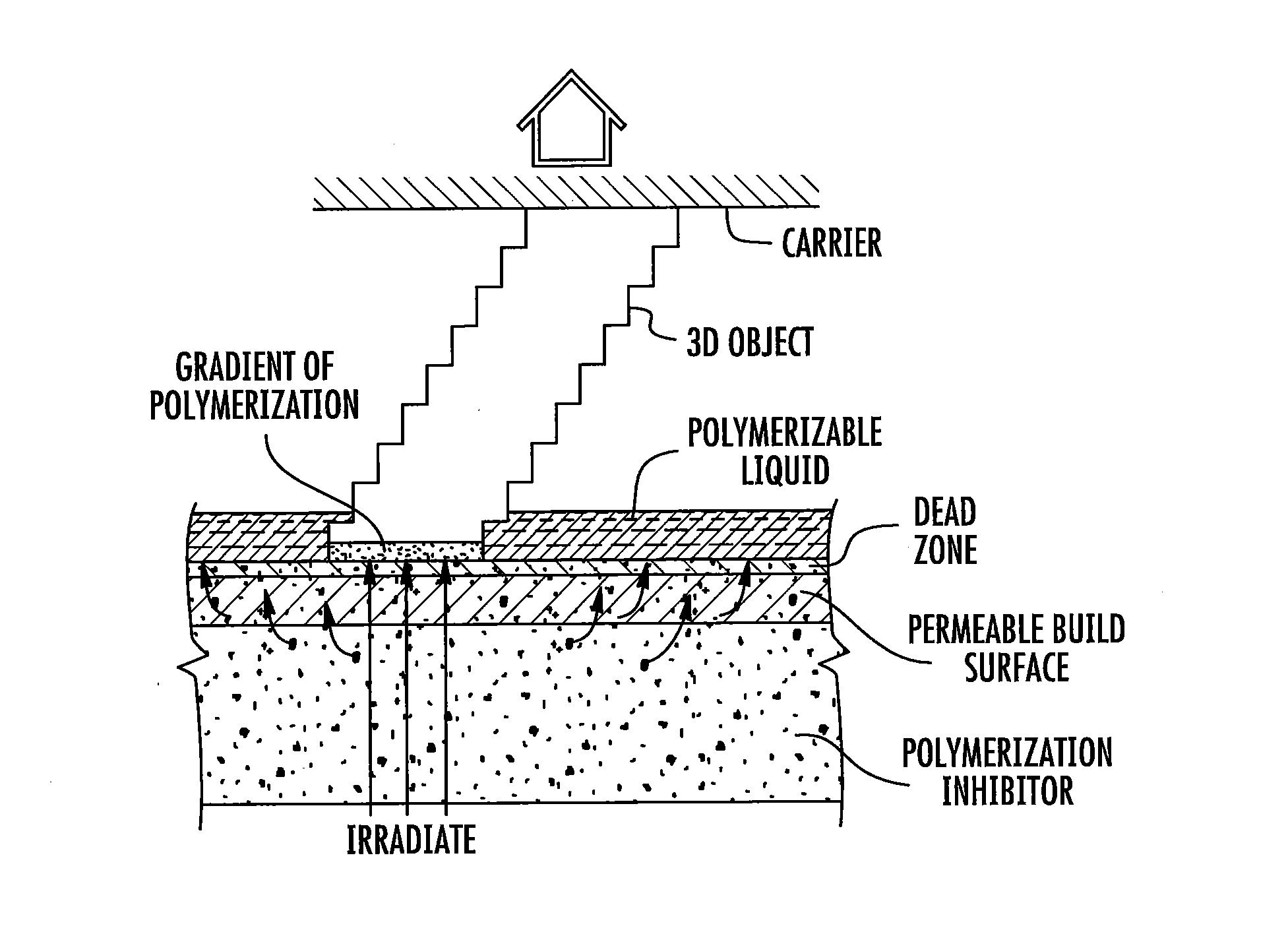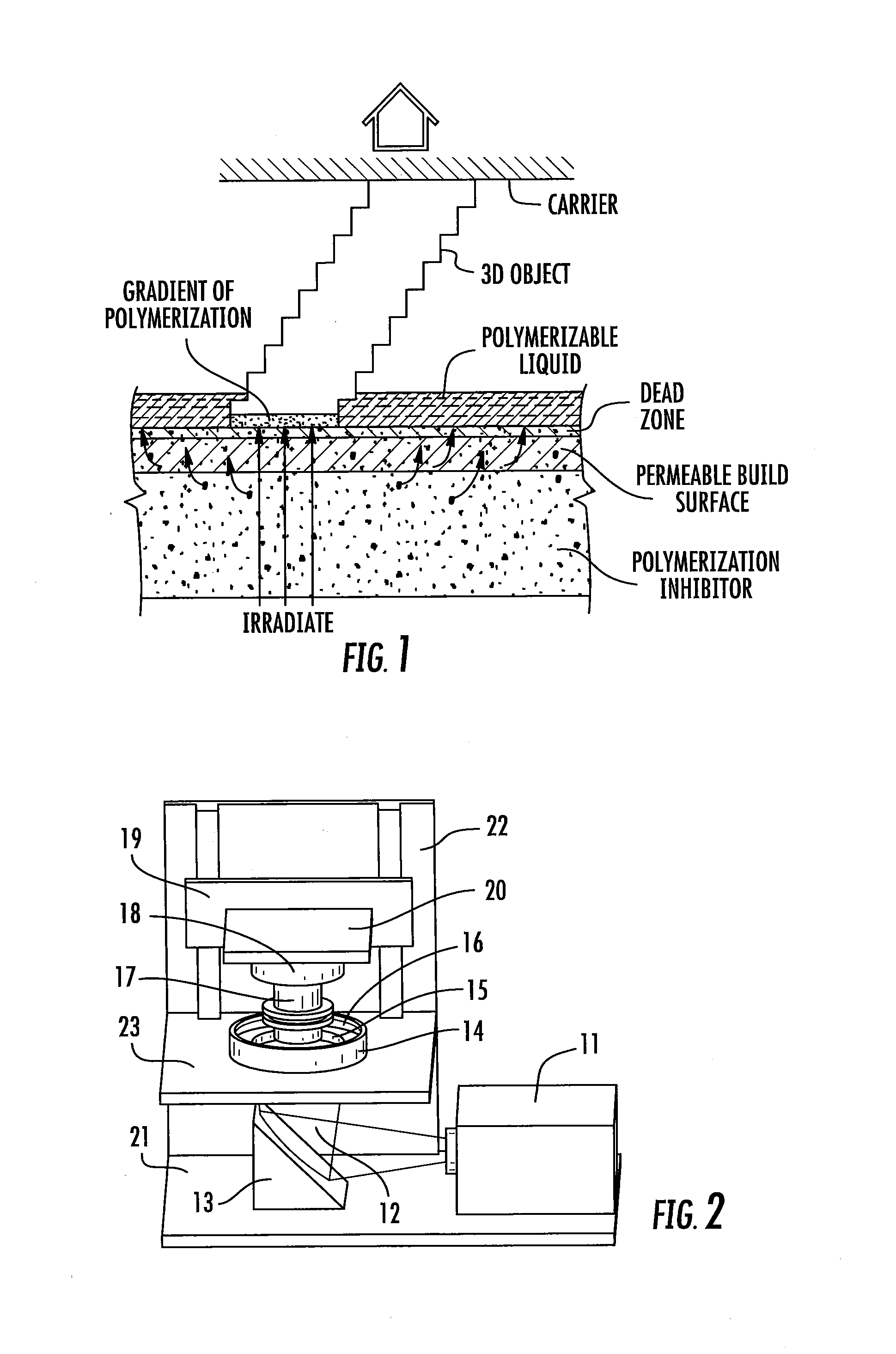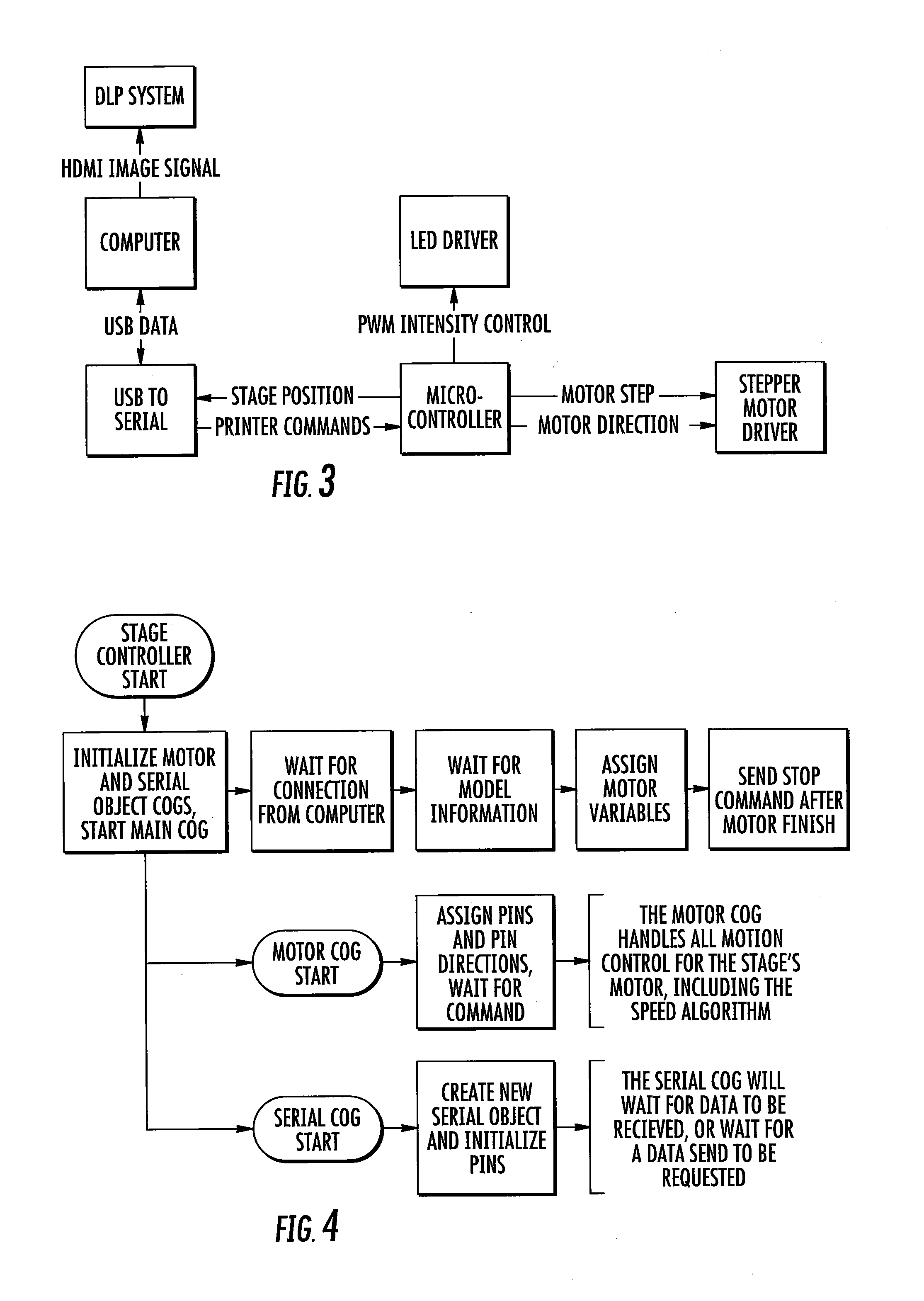Three-dimensional printing with supported build plates
a three-dimensional printing and support plate technology, applied in the direction of drawing profiling tools, manufacturing tools, applications, etc., can solve the problems of needing to submerge, use of additional mechanical elements, extreme care, etc., and achieve the effect of reducing the viscosity
- Summary
- Abstract
- Description
- Claims
- Application Information
AI Technical Summary
Benefits of technology
Problems solved by technology
Method used
Image
Examples
example 1
High Aspect Ratio Adjustable Tension Build Plate Assembly
[0271]FIG. 6 is a top view and FIG. 7 is an exploded view of a 3 inch by 16 inch “high aspect” rectangular build plate (or “window”) assembly of the present invention, where the film dimensions are 3.5 inches by 17 inches. The greater size of the film itself as compared to the internal diameter of vat ring and film base provides a peripheral or circumferential flange portion in the film that is clamped between the vat ring and the film base, as shown in side-sectional view in FIG. 8. One or more registration holes (not shown) may be provided in the polymer film in the peripheral or circumferential flange portion to aid in aligning the polymer film between the vat ring and film base, which are fastened to one another with a plurality of screws (not shown) extending from one to the other (some or all passing through holes in the peripheral edge of the polymer film) in a manner that rigidly and securely clamps the polymer film th...
example 2
Round Adjustable Tension Round Build Plate Assembly
[0277]FIG. 9 is a top view and FIG. 10 is an exploded view of a 2.88 inch diameter round build plate of the invention, where the film dimension may be 4 inches in diameter. Construction is in like manner to that given in Example 1 above, with a circumferential wave spring assembly shown in place. Tension on the film preferably adjusted to a like tension as given in Example 1 above (again depending on other operating conditions such as fabrication speed).
[0278]FIG. 10 is an exploded view of the build plate of FIG. 8.
example 3
Additional Embodiments of Adjustable Build Plates
[0279]FIG. 11 shows various alternate embodiments of the build plates of FIGS. 7-10. Materials and tensions may be in like manner as described above.
PUM
| Property | Measurement | Unit |
|---|---|---|
| area | aaaaa | aaaaa |
| area | aaaaa | aaaaa |
| area | aaaaa | aaaaa |
Abstract
Description
Claims
Application Information
 Login to View More
Login to View More - R&D
- Intellectual Property
- Life Sciences
- Materials
- Tech Scout
- Unparalleled Data Quality
- Higher Quality Content
- 60% Fewer Hallucinations
Browse by: Latest US Patents, China's latest patents, Technical Efficacy Thesaurus, Application Domain, Technology Topic, Popular Technical Reports.
© 2025 PatSnap. All rights reserved.Legal|Privacy policy|Modern Slavery Act Transparency Statement|Sitemap|About US| Contact US: help@patsnap.com



